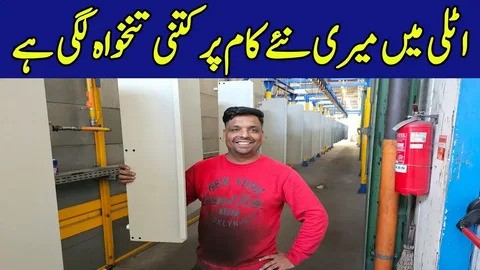Italy Factory Jobs
Ever considered working in a dynamic, hands-on role in a country where craftsmanship and precision matter? Factory jobs in Italy are plentiful—especially in sectors like automotive, food production, electronics, and fashion manufacturing. These roles often offer competitive pay, paths to legal employment, and an entry into living and working in Italy. If you’re ready for a change—and a chance to build something real—keep reading. You’ll walk away with salary insights, requirements, visa routes, and practical steps to get started.
Why Factory Jobs in Italy Are Worth Exploring
-
Wide sector diversity — from Alfa Romeo car parts in Turin to artisan food processing in Emilia-Romagna and garment factories in Tuscany.
-
High demand for skilled workers, especially in technical and production roles.
-
Competitive pay in many industrial regions, often with shift differentials and overtime.
-
Potential for legal residency — some positions align with Italy’s quota-based work visa system.
-
Cultural advantage — you gain craft skills, European living, and career milestones.
Approximate Pay Ranges for Factory Workers
(Data based on Italian regional norms and typical contract wages)
-
Entry-Level Assembly or Line Worker: ~€1,200–€1,500/month
-
Machine Operator or Technician: ~€1,500–€2,000/month (often hourly contracts)
-
Skilled Trades or Supervisors: ~€2,000–€2,800/month
-
Overtime & Shift Premiums: Typically 20–50% extra pay for nights or holidays
These figures reflect typical monthly costs and vary by region and contract type (e.g. Full-Time vs. CN (Contratto Nazionale)).
Common Requirements for Factory Jobs in Italy
Skills & Experience
-
Basic vocational training or experience in manufacturing work
-
Technical skills for machine operation or quality control are valued
-
Safety training or certifications (e.g., forklift licenses) are a plus
Language & Education
-
Italian language ability (at least conversational level) is often required for safety.
-
No formal degree needed—practical experience is key.
Legal & Visa Considerations
-
Many factory roles fall under Italy’s quota-based non-EU work visa system, particularly in agriculture but also light industry.
-
Employers must secure a Permesso di Soggiorno + work authorization, showing local shortage of applicants.
-
Some regions offer seasonal or project-based permits for manufacturing labor, subject to available quota.
Where to Find Factory Jobs in Italy
-
Job portals: Websites like InfoJobs, Indeed Italy, and LinkedIn list manufacturing roles across regions.
-
Industrial districts: Hotspots like Milan area (machinery), Emilia-Romagna (food and automotive), and Prato (textile) frequently post vacancies.
-
Temp agencies and industrial job agencies: Agencies like Adecco Italia or Randstad Italia specialize in placement for factories.
-
Local chamber of commerce or job centers (Centro per l’Impiego) often have listings, especially for locals or EU citizens.
Real-Life Snapshot: Working in an Italian Factory
Meet Marco, a 30-year-old from Romania. He landed a machine operator role in Modena’s agricultural equipment factory through a staffing agency. Starting at €1,600/month with shift bonuses, he learned Italian on the job and grew into a supervisory role. Today, he oversees a small team, earns around €2,300 monthly, and is applying for a long-term resident permit. “The pace, detail, and pride in Italian manufacturing gave me more than pay—I got skills and respect too,” he says.
FAQs Section
Q: What is the average salary for factory jobs in Italy?
A: Entry-level positions typically pay €1,200–€1,500/month. Skilled or supervisory roles range from €1,500–€2,800, plus overtime and shift premiums.
Q: Do I need to speak Italian?
A: Yes. Most factories require at least basic Italian for safety and coordination, though some companies in international districts may work in English.
Q: Can non-EU citizens work in Italian factories?
A: Yes—through Italy’s quota-based non-EU work visa process. Employers must apply for a decree under the annual quota.
Q: How do I apply for these jobs?
A: Search job sites, contact staffing agencies, or apply directly to factory HR. If hired, work permit paperwork begins through your employer.
Q: What type of contract will I have?
A: Contracts fall under CN (Contratto Nazionale) categories like metal goods, textile, or agro-food. They outline pay, shift rules, account for bonuses and overtime.
Tips to Get Started & Stand Out
-
Learn basic Italian—safety language and teamwork rely on it.
-
Train or show familiarity with tools, machinery, or manufacturing standards.
-
Leverage agencies—temp and staffing firms often handle visa applications for candidates.
-
Target industrial zones—clusters like Lombardy, Veneto, Emilia-Romagna have more job openings.
Is This the Right Path for You?
If you’re practical, physically able, and ready to learn on the job—factory jobs in Italy offer more than a paycheck. You’re gaining manual skills, European experience, and a tangible career path. The work can be demanding—but the pride, the craftsmanship, and the slower-paced Italian lifestyle make it worth the effort.
If you’re ready for structured work, skilled practice, and real possibility—this could be your next chapter. Apply, show up, learn fast—and you might wind up part of Italy’s renowned manufacturing legacy.



